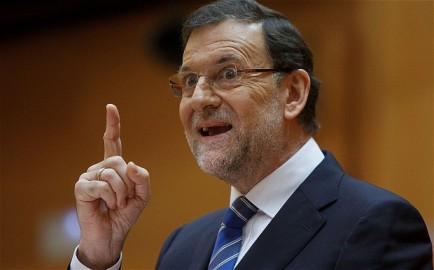
Rajoy has a plan, and he’s sticking to it
Spanish Prime Minister Mariano Rajoy is set to ignore a suggestion from the International Monetary Fund (IMF) to raise taxes as he eyes re-election in 2015.
Analysts from the European Commission and the IMF have both urged Rajoy to increase indirect taxes and close fiscal loopholes in the economy, which is still tottering slowly to its feet after a double dose of recession…
In June, the Spanish Prime Minister announced further tax cuts designed to help the average Spaniard. The cuts included a reduction in income and corporate taxes, which have had the effect of increasing the average take-home pay and lowering companies’ tax obligations.
Popular moves, of course, but unemployment remains above 25 per cent – prompting financial experts to urge the PM to reassess his budget management.
“What we’ve seen so far is revenue losing,” said the head of the IMF’s Spain mission, James Daniel. “That will need to be compensated by further measures in the future.
Spain must instead, according to Daniel, embark on a continued policy action designed to ensure a sustainable, strong and job-rich growth period. “The legacy of the crisis persists, as unemployment remains high and public and private debt levels are elevated,” Daniel added.
Rajoy, however, is unlikely to be persuaded to deviate from his chosen path of low taxation, at least not before next year’s election as he sets his sights on securing a second term in office.
 en
en



 Vlaams-Nederlands
Vlaams-Nederlands
0 Comments
Leave a Comment
DISCLAIMER
The opinions and comments expressed by contributors to this Blog are theirs alone and do not necessarily reflect the views of VIVA Homes Under the Sun Ltd, any of its associated companies, or employees; nor is VIVA to be held responsible or accountable for the accuracy of any of the information supplied.
Have you got something to say?